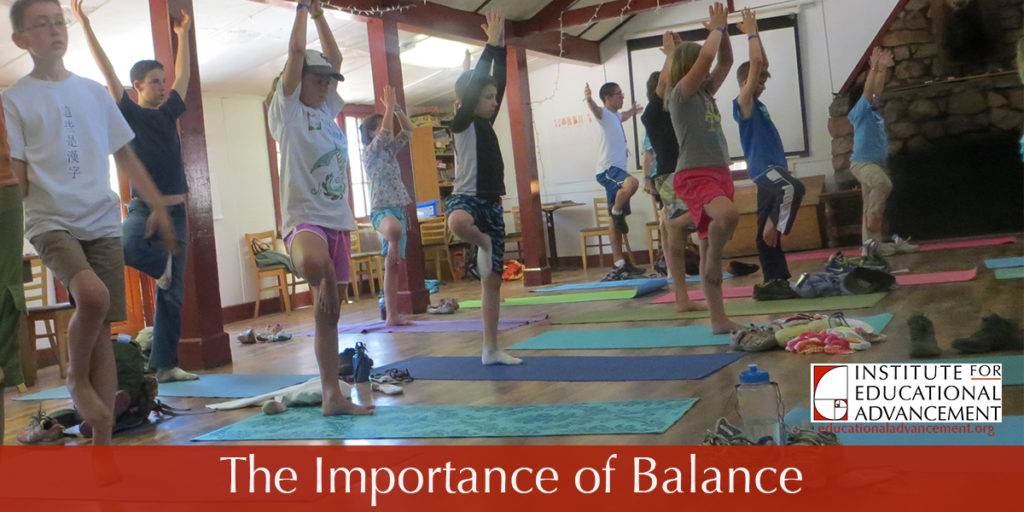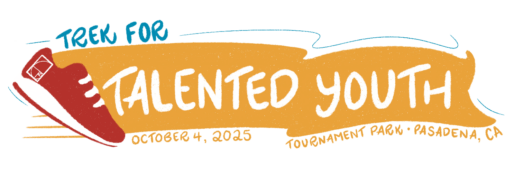By Jennifer de la Haye
Jennifer is the Program Coordinator for Yunasa, IEA’s pioneering summer camps that unite gifted young people ages 10-15 with experts in highly able youth. In a nurturing setting, campers explore and grow the intellectual, social, emotional, spiritual, and physical aspects of their lives. Yunasa is the Lakota Sioux word for “balance.”
“Breathing in, I calm body and mind. Breathing out, I smile. Dwelling in the present moment, I know this is the only moment.”
-Tich Nhat Hanh, Zen Buddhist monk
At Yunasa, we begin each psychosynthesis session with a similar directive. Tich Nhat Hanh’s words remind us that all of life is held in this moment; his words encourage us to smile and seek gratitude for the moment we are in. Psychosynthesis, as practiced at Yunasa, is meant to cultivate balance amongst its participants, whose minds are often swirling with thoughts, anxieties, ideas, and observations, and for whom a peaceful moment is a true gift.
The word “balance” connotes an array of ideas – time management, sanity, stress-control, and lithe circus professionals sauntering across tight ropes. At Yunasa and within all of IEA’s programs, we strive to impart the type of balance that helps us to understand and interact with every piece of ourselves in an effort to pursue wholeness. In his commentary, “The Heart of Understanding,” Tich Nhat Hanh refers to the five elements that comprise a human being as five rivers that flow through every one of us: “…the river of form, which means our body, the river of feelings, the river of perceptions, the river of mental formations, and the river of consciousness.” These “rivers” are “made by the other four,” he says. “They have to co-exist; they have to inter-be with all the others.” Just as each limb, neuron, cell, blood particle, and organ work together to sustain physical existence, so do the body, myriad emotions, soul, mind, and relationships interconnect to create life experience. Thomas Merton, a Catholic Trappist monk, says, “There is in all visible things…a hidden wholeness.” We strive to be whole, to seek balance, because wholeness brings us closest to who we are – complex and alive.
The pursuit of wholeness requires vulnerability because it means that we are intentionally acknowledging parts of ourselves that are less developed, even broken. In our culture of social media, it is tempting to present a polished rendition of ourselves – the most attractive, the cleverest, the most sophisticated version – as though we are ashamed to reveal the bits that we are working on, the parts of ourselves that need help. If we are not careful, this tendency creeps into our real-world presentation of our self, as well; this self is safer, impervious, protected by the armor of contrived impeccability. To grow in understanding of ourselves, however, and to establish meaningful, mutually empathetic connections with others, we must embrace vulnerability. As Brené Brown, author and public speaker, discusses in the podcast On Being: The willingness to approach life with our whole heart cannot be less than our willingness to be broken-hearted.
“We must make the choices that enable us to fulfill the deepest capacities of our real selves.”
-Thomas Merton
We must take risks to be whole. For a shy intellectual, it might feel terrifying to acknowledge his innate need to integrate into an accepting community, especially if he suffers from the internal vituperation of perfectionism, when every word that he uses to forge a connection with another leaves him riddled with doubt. Likewise, understanding the connection between one’s emotions and her physical reactions, or engaging her physicality through outdoor adventures, might seem scary for the individual whose exceptional gifts are rooted elsewhere. Some of us prefer to eschew emotion altogether in an effort to remain focused on our work or to avoid the discomfort emotion sometimes renders. To live in relationship with ourselves and others, to pursue wholeness and balance, we must, with vulnerability and honesty, take the necessary risks. Yunasa is important because it is a safe, accepting place to take these risks and to delve into intensive learning about ourselves and our world.
This is our intention: to develop our ability to relate to others and our capacity to empathize with different perspectives; to explore and cultivate our blazing intellect; to create honest connections with the world, with nature, and with our community; to grow in understanding of our range of emotions – intense, subtle, tender, and wildly uncomfortable; to engage the intricacies of our spirit – both delicate and resilient; and to acknowledge the interconnectedness of each of these pieces – how they influence and inform one another at every moment.
In seeking balance, we are not striving to achieve equilibrium amongst every element of our personhood. Living in balance does not mean that one’s social skills are on par with her ability to reason, or that one’s physical agility matches her profound emotional reaction to beauty in nature or literature or art. Balance isn’t a strange and unnatural perfection; rather, balance is to understand the relationship between all of our parts – the developed pieces and the fragile ones. A musician does not employ every note of his instrument simultaneously or with equality; if he did, the result would be shrill and offensive. Instead, he creates an interaction between each of the notes; they complement one another, culminating in mellifluous accord – beautiful and alive.
Like this post? Sign up for our email newsletter to receive more information and resources about gifted youth straight to your inbox.
Learn more about IEA’s Yunasa summer camps for gifted youth here.




